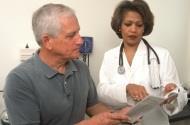A young patient with type 1 diabetes says her early experiences reveal an urgent need for structured patient education from the first diagnosis

After a shock diagnosis of type 1 diabetes, Lauren Proctor was sent home from hospital with an injecting kit and practically no educational back up; a week later, she had her first hypo.
Aged 19, the student was hundreds of miles from home and the diagnosis had come as a bolt from the blue. The lack of education about what it all meant, and what she should be doing, compounded matters.
“I was in my second year at university and I had been feeling tired and poorly. I thought at first that I was just exhausted because I had three jobs and was trying to fit everything in. But I was insanely thirsty – I would have to ask strangers sitting next to me in lectures if I could have some of their water, and had to go to the toilet five times a night. I also had blurred vision, so I knew something was wrong.”
She managed to get an appointment with a practice nurse, but, having looked up her symptoms online, had – wrongly – self-diagnosed type 2 diabetes. “I thought that would be a bit of a pain,” she confesses. “But my blood sugars were so abnormal that the nurse called the doctor in and I had to go to hospital.
“It was awful: my parents were miles away, I was three hours in [accident and emergency] and I was crying my eyes out.”
Ms Proctor was admitted to a ward “full of geriatrics”, she says, and did not really have a clue what was happening. The level of information was poor – her friends were bringing her sandwiches, and she was eating them, not knowing that she should not have been.
“The hospital wanted to see me inject myself before I went home to make sure I could do it. I was given a blood glucose monitor and a strips box, but broke it. I really felt I was on my own and I didn’t know what I was doing. I had my first hypo a week later in the library. I think I had 15 different appointments in four weeks: there was so much to take in.”
‘There’s no other disease where the patient is making such critical medical decisions themselves, every day’
After this, she says, she became “really well controlled” because she got some books, educated herself, and did everything to the letter. But it was not until three years later that she was offered her first structured education course.
“By that time my control was really good, and none of [the course] was a major shock to me but it was really useful anyway,” she says. “We touched on things like pregnancy and diabetes. It was an opportunity to make friends and to find out from other people what their care was like.
“It really made me feel that there shouldn’t be a postcode lottery for patient education. I was only offered a course when I came to London [in 2012, three years after diagnosis] but, if everyone was taught how to manage the condition, it would save the NHS a fortune. If people don’t know what to do, then obviously they will need to use services more and that’s just crazy.”
Having type 1 diabetes is central to the way she leads her life now, Ms Proctor says. As the busy personal assistant to a think tank boss, she is enjoying her career, and has also been campaigning for more equitable care for people with diabetes, but the disease does have an impact on her life more generally.
“I have to think about my blood sugars – for example, one of my friends was doing Tough Mudder [a gruelling obstacle course] and I know that’s just something I’ll never be able to do.”
For the future, she hopes that new technological developments such as continuous blood glucose monitoring will become more affordable and available on the NHS – something she says would make her life easier.
But she believes that it is vital that people who are newly diagnosed get access to the structured education programmes.
“With diabetes you’re doing 99.9 per cent of the management yourself,” she says. “There’s no other disease where the patient is making such critical medical decisions themselves, every day.
“I hate that I cost the NHS thousands of pounds a year as it is – but without education I’d be costing the taxpayer much, much more, and that’s just wrong.”
Topics
The era of prevention

Controlling costs by promoting better self-care
- 1
- 2
- 3
- 4
- 5
- Currently reading
Structured education: Correct timing is crucial
- 7







































No comments yet